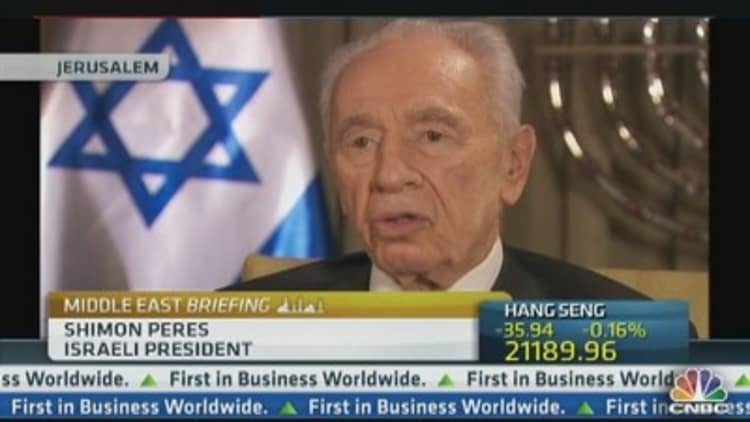The Muslim world would flourish if a peace agreement is reached between Palestine and Israel, according to Munib Rashid al-Masri, the veteran Palestinian and Jordanian statesman.
However, he added that failure to find an accord would lead to an economic shock of huge proportions for the region.
Al-Masri, also known as the "Duke of Nablus" and the "Palestinian Rothschild" is a prominent voice in Middle East politics.. He has three times turned down offers to become prime minister of the Palestinian Authority. He is also chairman of the Palestinian Development and Investment Company, whose shareholdings and interests cover a quarter of the Palestinian economy.
(Read More: )
Speaking on CNBC's Access Middle East he warned of the economic consequences for the region if conflict continued.
"A big volcano is erupting and it will take everything away. a big tsunami is coming," he said.
Al-Masri is a strong believer of a two-state solution and echoed Israeli President Shimon Peres's comments to CNBC back in June when he called for the establishment of an independent Palestinian state.

If both nations were to enter successful negotiations advocated in the Arab Peace Initiative - first proposed in 2002 at the Beirut Summit of the Arab League - then both economies will flourish, he said, having a knock on effect for the wider region.
"57 Arab and Islamic countries will (be) normalized, complete federation and political relations with Israel, with the State of Israel," he said.
"Could you imagine? Goods, technology, food, medicine could be bought in Jakarta, imported to Karachi in Sudan."
(Read More: Israel's President Peres Calls for Two-State Solution)
Al-Masri added that the Palestine Stock Exchange (PASISI) could grow by 200 to 300 percent is the instability in the area is resolved.
He also called a way for goods to be transported between the West Bank and Gaza to boost imports and the economy and potentially leading to the building of a sea port. Out of around 34 companies that Al-Masri owns, 30 are affected by the ongoing conflict, he said, due to a lack of availability of goods and services.
"They need an open road...you cannot exist on checkpoints," he said. "Gaza is 46 percent, 48 percent of the total economy of Palestine. So it's very difficult, very difficult."


